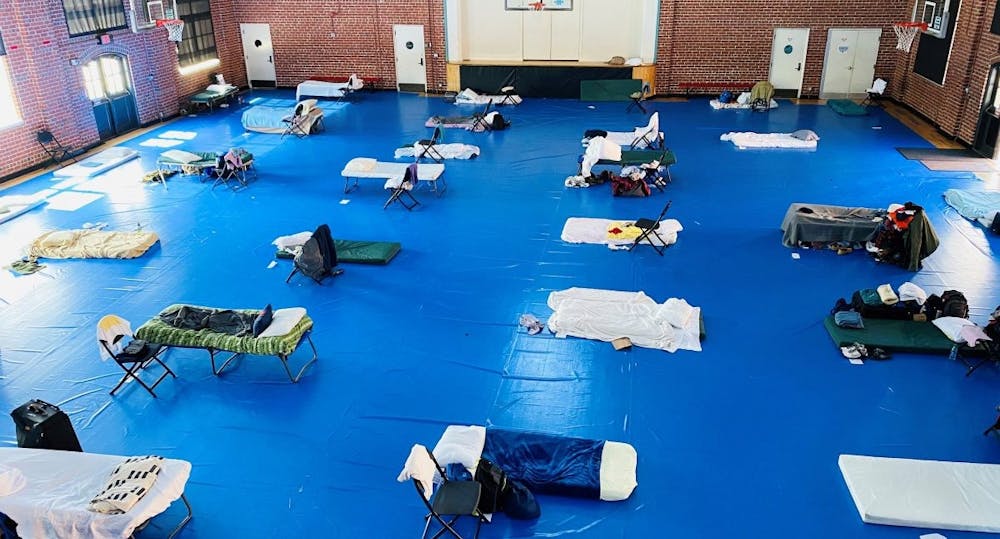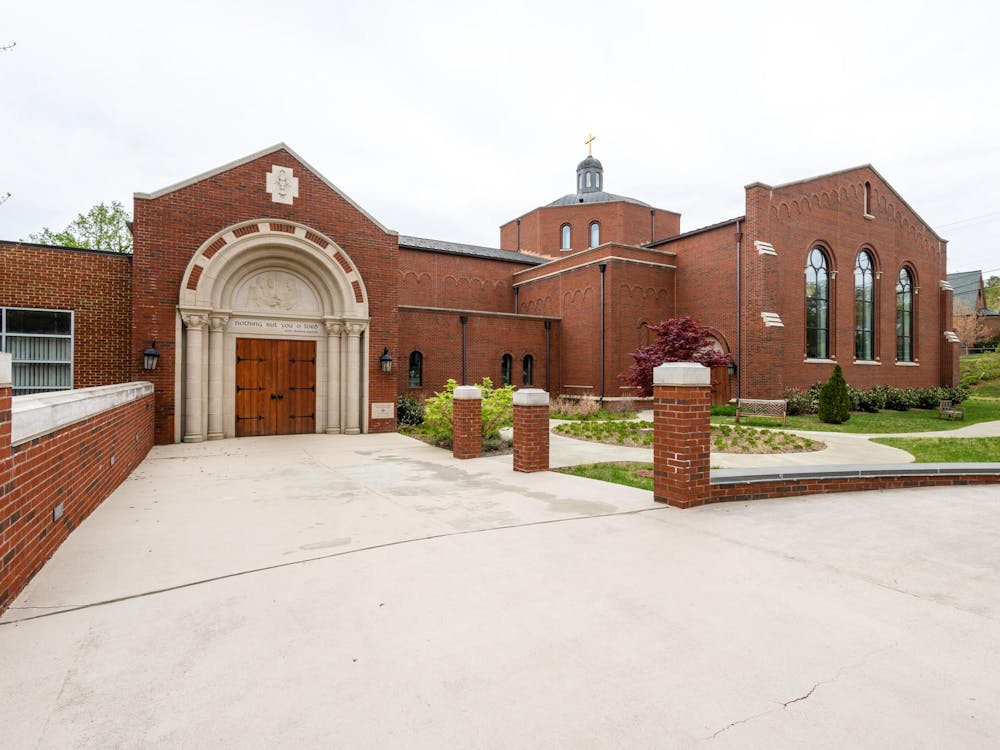On March 30, Virginia Governor Ralph Northam issued a stay-at-home order to help flatten the curve by reducing the number of people infected with COVID-19. Last month, social distancing requirements began to ease for residents of the Commonwealth, but as the number of overall cases continues to increase due to expanded access to testing, health organizations advise residents to stay at home as much as possible to help prevent the spread of COVID-19.
But what if a Virginian does not have a home at which safe social distancing can be practiced? Or a home at all?
These are the very questions that have been facing the homeless population of Charlottesville — and the Thomas Jefferson Area Coalition for the Homeless and its affiliated organizations — over the last several months. Together, these organizations — which include The Haven, a day shelter at First and Market, and the People and Congregations Engaged in Ministry — are working to keep the homeless safe amidst the pandemic.
According to Ross Buerlein, director of the University Community Outreach Clinic centered at The Haven, the homeless population of Charlottesville has an increased susceptibility for contracting the virus and developing serious complications in addition to facing a higher death rate from the virus in comparison to the general population.
Even without the threat of COVID-19, homeless individuals are an aging population and are more likely to be comorbid for medical ailments like diabetes and chronic respiratory diseases. They also have limited access to key resources like hand hygiene products and medical care, and because homeless individuals often live in crowded conditions, it can be difficult for them to effectively socially distance.
Furthermore, the high temperatures of the summer months compound these health-related issues and put the homeless population at further risk.
“The homeless population is particularly vulnerable to dehydration, heat exhaustion and heat stroke due to a lack of easy access to air conditioning, shelter and water,” Buerlein said. “Additionally, extreme heat is associated with increases in exacerbations of underlying mental health disorders, which are particularly prevalent in the homeless.”
Recognizing the dangers posed to the homeless community by the coronavirus and high summer temperatures, TJACH, The Haven and The Haven’s Community Outreach Clinic have implemented a number of protective measures.
The Haven’s Executive Director Steven Hitchcock explained that hand sanitation stations — which include three to four bottles of hand sanitizers placed in a circle near the doors of The Haven and other shelters in Charlottesville — were established in March in an effort to combat the reduced access to healthcare and typical hand hygiene methods faced by the homeless.
TJACH Executive Director Anthony Haro stated that at its peak activity, COVID-19 was estimated to infect nearly 40 percent of the homeless — 160 in number in Charlottesville. However, due to these new measures instituted at homeless shelters and a recent initiative to house individuals who are high-risk for developing severe complications from COVID-19 in a hotel, there remain no positive cases in the homeless community.
In order to be tested for COVID-19, an individual used to have to be referred to testing by their primary care physician. Because most people experiencing homelessness do not have a PCP, they can now call the COVID-19 hotline created by the University Health System to direct anyone in Charlottesville to available free testing. The health system has also opened the Community Call Line where any individual in the community can call to find a PCP and seek assistance as they navigate the healthcare system. Additionally, the Community Outreach Clinic is in the process of implementing a telemedicine platform at The Haven so that patrons can make telemedicine appointments and seek further health assistance.
To address the lack of space available for homeless individuals to effectively quarantine, community leaders from The Haven, PACEM and The Salvation Army successfully lobbied to allow male homeless individuals to sleep overnight at the Key Recreation Center — a facility that allows the homeless to follow the recommended guideline of staying six feet apart while social distancing. For female guests, PACEM reopened its overnight women’s shelter. The Haven, which is typically a day shelter and does not have the capacity to house all patrons overnight, has extended its hours so that female patrons without homes can sleep at the shelter.
The Haven is also open to patrons without homes and continues to operate in the second phase of adapting to the pandemic, which includes serving to-go meals.
But as other public spaces like the Jefferson-Madison Regional Library remain closed to public gatherings, the locations at which the homeless can stay while social distancing remain limited.
For now, funding from both Albemarle County and a private donor have allowed 30 homeless individuals who are at a high-risk for developing complications from COVID-19 to stay in private rooms at La Quinta Inn and Suites on Emmet Street — a measure that limits their potential exposure to COVID-19 in congregate shelters. A team of students at the School of Medicine — led by Shefalie Hegde, Medical School Class of 2020 alumna, and rising third-year Medical students Jacqueline Carson and Becca Kowalski — have followed up with these 30 high-risk individuals by monitoring their symptoms and wellbeing in addition to delivering daily meals.
Space has also been reserved at a separate location for homeless individuals should someone test positive for the coronavirus in the future.
However, housing people in hotels remains a temporary solution to a larger problem.
“I think the biggest challenge we face right now and will continue to face is finding permanent homes for people experiencing homelessness,” Haro said. “A lot depends on U.Va.'s decision to host on-site classes or not in the fall, as this directly and significantly affects housing that might be available as a result of not having classes and students not living in Charlottesville for the next year.”
While the University released a statement May 28 confirming that some in-person classes will be held in the fall, the extent to which students will stay in Charlottesville remains unknown.
Readers interested in learning more about the guidelines in place to protect the homeless from COVID-19 can visit the website for the Centers for Disease Control and Prevention. Readers interested in supporting the homeless can make monetary or in-kind donations to The Haven, PACEM or The Salvation Army. The COVID-19 Student Service Corps at U.Va. has also compiled an Amazon wishlist for common items needed by The Haven.







